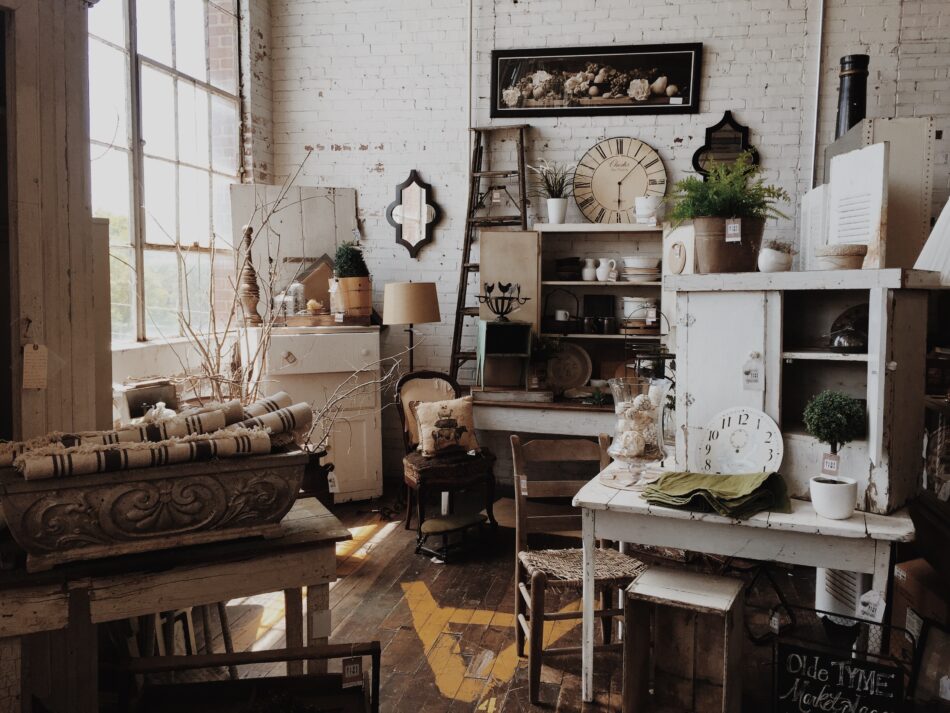Prepare Your Business for New Food Waste Legislation in the UK
From 31 March 2025, most UK businesses must arrange separate food waste collections. Learn and prepare for the new food waste legislation in the UK.

When disposing of furniture, it can be difficult to know exactly what to do with it. Furniture tends to be bulky and made from various materials, making recycling old furniture tricky. It’s possible though and can be a great option when you’ve got tables, chairs, and other furniture that’s broken, damaged, or just no longer needed.
Whether you need to dispose of furniture from your home or business, it’s essential that you follow the proper processes. When you know how to properly deal with it, recycling or disposing of old furniture can be quick and easy. Learn all about furniture disposal and recycling with our help below.
Furniture waste can class as various types of waste depending on what items you want to get rid of. For example, a solid oak dining table will class as wood waste, while a steel chair is metal waste. It can be trickier for furniture made from more than one material.
However, most materials used to make furniture are usually recyclable. Normally old furniture classes as one of these waste types:
There’s no single inventor of furniture – it’s as old as civilisation itself. Archaeological research has found evidence of wood, stone, and animal bones carved into furniture from around 30,000 years ago. The first known use of a chair dates back as far as 3300 B.C. in Ancient Egypt and Mesopotamia.
Lots of different materials are used to make furniture – ranging from aluminium and steel to plastic, wood, and more. The different combinations and variations of these materials to make various items of furniture mean many processes are involved to produce a piece of furniture. Furniture can be both handmade or constructed in factories.
Furniture disposal can depend on its condition, the materials it’s made of, and where you are in the UK. For any furniture in a good condition, the best disposal method is to donate it to charity, give it away, or try to sell it. This saves energy and materials otherwise required to create new furniture.
Many areas have programmes to help recycle old furniture. Some towns and cities have yard-waste pickup services for furniture made from wood or metal. To find out if your town has such a programme, contact your local council.
You could also sell your furniture at a car boot sale or online. Repurposing old furniture for a new use in your home or garden (such as storage or plant bedding) is another green option. For damaged items that are of no use, recycling furniture is possible. Many cities have recycling centres where you can drop off old furniture for recycling.
When you send furniture for recycling, it first goes to a special facility for cleaning. After your old furniture is cleaned, it’s sold to businesses that use recycled products. Office furniture is one of the most recycled furniture types that’s cleaned and used again for new products. This process saves on resources and creates less waste in landfill.
Furniture sent for recycling that’s unsuitable for a second life is disposed. This involves taking these items to a waste or scrap yard that specialises in recycling metals, plastics, wood, or other materials. Scrap yards specialise buy certain products by weight and will recycle the materials that make up your old furniture.
There are lots of alternatives to buying new furniture when you need an item for your home, office, or workplace. If you’re thinking about buying new items but want to save some money and reduce your carbon footprint, try looking for used pieces on sites like eBay or Facebook Marketplace – or check with local businesses in charity and antique shops.
Unconventional pieces can sometimes provide better value, as well as unique character for your home or office. Depending on the condition of your old furniture, you might be able to repair and reupholster it, giving it a new lease of life with a lick of paint or a fresh varnish.
A few key facts about furniture disposal and recycling are that:
Many cities now offer home pickups for various items of old furniture. In some areas the council will collect large items for free in an effort to reduce fly-tipping. Charity shops will also take furniture for free, and online marketplaces offer ‘collection only’ listings to avoid paying shipping fees.
If you run a business and need to recycle furniture, you’ll need to arrange commercial waste collection by licensed waste carriers. This isn’t free but the only safe and legal way to get rid of furniture from your company. Contact us today to find out how much old furniture disposal could cost with a free quote tailored to your needs.
Find out more about other rubbish streams. Learn about POPs waste
Get a fast FREE quote for your furniture disposal
From 31 March 2025, most UK businesses must arrange separate food waste collections. Learn and prepare for the new food waste legislation in the UK.
The study participants included business owners and company employees, revealing unexpected findings about corporate environmental practices.